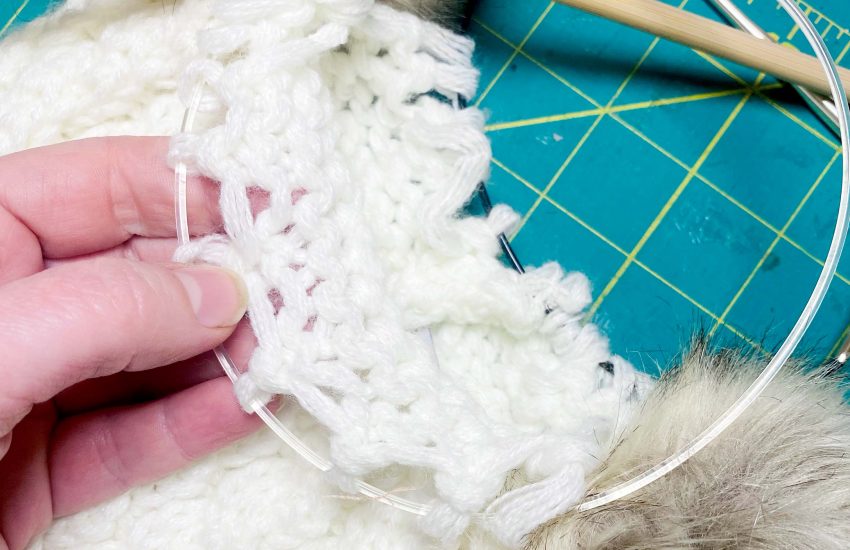Craft Business :: Tax Day Review ::
I think that one thing that is the most confusing and scary for me is taxes. It’s not that I’m bad at keeping track of things, making spread sheets, or saving my receipts. It just seems like a great unknown to me and everything I’ve read on the subject just adds to the confusion instead of clearing it up. In many ways I think I actually just psych myself out and make it more complicated that it should be.
So looking back to this last year of book keeping what will I do for this year/what did I learn?
Saving all my receipts and making notes directly on the receipt as to what the expense was really helped me file everything when it came time to.
+save receipts
-should have filed them each week instead of at the end of the year
Solution: I have set aside a few hours each Monday to focus on book keeping – filing expenses, incomes, and balancing all accounts.
Knowing what to file under where is really helpful, if you set up a spread sheet, or just make a file for each expense to toss receipts in, it will help at the end of the year crunch. All expenses you can claim are listed right on your Schedule C form (profit or loss from business). Part II lines 8-17.
+made a spreadsheet with the exact expense categories in it to add up my receipt totals on
-should have done so at the beginning of last year
-should have entered expenses each week instead of just at the end of the year
Filing taxes can be complicated because maybe I’m not sure exactly which form is used for what and how I can claim certain things – like expenses that depreciate or are claimed over several years. Or the self employment tax form – when should I use it?
Solution: Get some tax software. I really like TaxCut Premium because they walk you though everything for your business with interview questions. They determine what you can deduct and claim by asking very specific questions.
Solution 2: Go see an accountant. This is a huge time/stress savor and if you can, just go. They will send you a questionnaire in January so you know what forms/receipts/etc to collect up for them. You just turn it all in and they take care of the rest. And usually it just costs $100 – $200 for a sole proprietor. Very affordable.
A book keeping/ tax software combo makes things super easy, but how to get it started?
Solution 1: Diy. You can teach yourself, but it can take a long time and it can be really hard to determine what accounts to set up, but if you have the will and the time, go for it. I’m giving this a shot, but I might just cave and go with solution 2.
Solution 2: Go to an accountant and have them set up the accounts for you (categories you credit and debit from). They will come to your home if you have a desk top, or you can take your laptop to them. They will also walk you through the software and show you how to do everything you need to. Then at the end of the year you can just import your business file to TaxCut or Turbo Tax and lickity split it does it all automatically and you just click through the options to double check things. This is what I’m hoping for next year.
+I have purchased Quickbooks Pro and am working on entering back expenses and incomes (pretty much the last 4 months of my check register) and setting up all accounts
+potentially saves a lot of time, but the initial time investment can be a little daunting.
-you do have to start up from the beginning of the year so that does mean entering all your data from the beginning of the year
-you can really mess things up if you don’t set it up correctly
I might just go to an accountant and have them do it all. It gets to the point of how much is my time worth to me, do I want to focus on making things (hooray) or making sure the irs is happy (meh).
There are a lot of benefits of keeping complete and accurate records year round.
+gives you a great idea of where your money is coming from and where it is going. This is particularly important for those of us receiving incoming from multiple sources.
+allows you to make better decisions about how much you can pay yourself out each month from your business as well as how much is reasonable to invest back into your business.
+if you get audited you have complete records and it won’t be a big deal.
I really found the book Keeping the Books by Linda Pinson really helpful in figuring out what to keep track of and how. She also has some great schdules of forms that have to be filed each month. When I looked at this book I realized that I had thought Taxcut had filed my fed estimated tax (form 1040es, but it was actually just my self employment tax – schedule c), but it didn’t and so I did a quick recovery and got it submitted. I honestly had a lot of anxiety this year about taxes and think I may just have someone else take care of it next year. I want to do my own book keeping, but come tax time, I want someone else to take care of me.
When deciding if you should go to an accountant or do it yourself you need to ask yourself this:
How much is less stress worth to you?
Will you mess up/is the anxiety of messing up so great that it keeps you awake at night in the months leading up to tax time?
Do you enjoy doing taxes or is it like taking an exam and it feels like you are going to fail out of college if you mess it up?
For me all those questions lead me to the answer that while I love keeping my books and think I’m fully capable, I hate doing taxes. They lead to fear and anxiety that is out of this world and sucks up so much studio time leading up to the dates that are required for filing – so once every 3 months because when you have your own business it’s often that you have to file things quarterly (estimated tax, social security, etc).
If you decided to go to an accountant, get a head start, they may be too busy to take you on when the 15th of each quarter roles around – I’m going to call next week actually and get started taking care of next quarter and next year’s april.
++++++++++++++++++++++++++++++++++++
So what do you do for your business? do you diy your book keeping and taxes or do you get professional help? what options are most appealing to you? What suggestions and tips do you have for those of us who are no good with tax time?
++++++++++++++++++++++++++++++++++++
Tomorrow we will be back to some good fun crafty time! I have a mending kit pattern that I just know you will love all ready to go. Mending on the Go – just what we need for heading into summer vacations right? Summer is around here somewhere? It’s actually pretty nice out, but a little chilly. My sprouts are up that I started and I am loving the extra green in the apartment. Grow little guys! grow!
See you soon! Keep it creative!
Kristin
ps – make sure to get your issue of clm, they are going quickly this month and there are just 5 subscriptions left! Holy moly! Thank you to everyone whose ordered so far!
pss – I think I’m still in tax day shock, so I’m going to put together another post in a few weeks on book keeping methods and resources for when you are small and just getting started – I think the most confusing time. This post is my initial review/feelings of the topic the day after filing.



I borrowed an idea from a friend, by hanging a manila envelope on the wall, from a binder clip. It’s labeled with the month and year, and I just put all my receipts into that for the month, and everything is in one place.
My friend had several envelopes posted with the type of business expense listed on each envelope. This keeps the receipts nice and orderly and accessible come tax time.